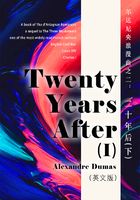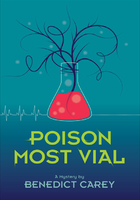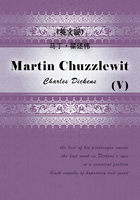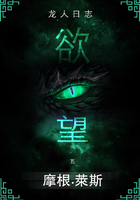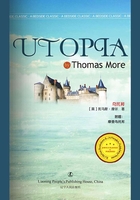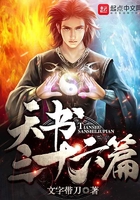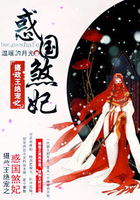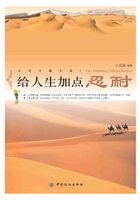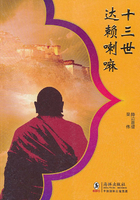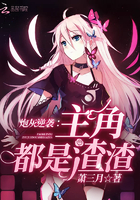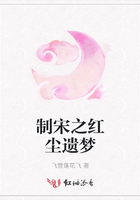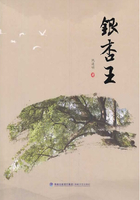Rome. The 1950s. Griffin watched a father and son on a search for the lost bicycle. Knowing the title, it was obvious that someone had stolen the bike, that this poor man needed it, and that he and his son were now, since the movie was almost over, close to finding the bike and the person who had stolen it. It's a good title, thought Griffin. He liked a movie where the story and the title were the same thing. The father was accusing a man of the theft. Griffin assumed that the father had tracked the man down, that this really was the thief. Here was the danger, though: Everyone in the neighborhood rallied to the thief's defense. They were poor people, perhaps it was a neighborhood of thieves. But, of course, this had to be the thief, it was just too late in the film for a mistaken identity. You'd only do that in the second act, follow a wrong lead. The neighbors, the thief, and even the thief's mother forced the father to back down, after his son ran for a policeman. The policeman arrived but wouldn't arrest the thief. There was no evidence. The father goes with the thief's mother to search the apartment. The point of the scene is to show that everyone is poor, that everyone has a story of misery. The father and son wander around, lost, come to a stadium. There's some kind of game inside—soccer, probably. There are thousands of bicycles parked outside, and then the father sees one bike, alone, on a quiet street. He gives his son bus money and tells him to go away, then he steals the bike. The son does not go away. He sees his father steal the bike. The father is slow, and he's chased and caught. The father and son are let go by the bike's owner, who doesn't want to press charges, because he can see from the situation that the father was desperate. The father and son continue walking and crying.
Griffin was shocked when THE END flashed on the screen. They didn't get the bike. They would never get the bike. The ending was sad. It was so unnecessarily sad, too, because the father had suffered enough; having seen the bicycle thief's apartment, he had reached the point where he could forgive, and instead, he was being forgiven. The father was the Bicycle Thief. Was there a sequel?
The lights came up. Griffin worried how he was going to recognize someone who had bored him for twenty minutes five months before. It was too late to pray for a sign. He watched both rows. A woman passed him and looked at him as though she knew him, or knew who he was. She looked vaguely familiar to him, too, then he remembered. She had introduced him to a production class at the American Film Institute. She caught up with another woman, and he saw her lean into her friend and say something. She tipped her head back toward Griffin. They disappeared into the lobby. The friend returned and walked halfway down the aisle, then looked up toward the projection booth, making a show of searching the room for someone, when all she wanted was a look at Griffin. She got it and walked back out. Behind her was David Kahane.
Griffin supposed Kahane was scowling so hard because he was mad at Hollywood. Griffin stayed in his seat and looked across the aisle, as though he were studying the old plasterwork of the theater. Kahane was about thirty, with the sort of sharp, angular face and straight, thick hair Griffin associated with graduate students. Maybe it was just the wire-framed glasses and the plaid shirt. Griffin was ready to look surprised and happy when Kahane saw him. The writer crossed Griffin's line of sight and went into the lobby. Griffin had prepared his face to say "Hello" or "Hey, how are you?" and there was no one to receive this expression, which soured and withdrew from the missed connection. He considered forgetting the whole idea. Besides, he wanted something to eat.
In the lobby, Kahane walked into the men's room. Griffin knew it would be ridiculous to meet him there. No one shakes hands in the men's room. Griffin leaned against the wall opposite the door and waited.
Kahane came out, drying his fingertips on his jeans. He saw Griffin poised to say hello and he ignored him. He continued out to the street. Griffin followed and called to him on the sidewalk.
"David? David Kahane?" He tried to sound as tentative as possible. Kahane turned. Griffin put his hand out and introduced himself.
"What's the matter," said Kahane, "couldn't you get a screening of it?"
It was obnoxious, but he said it with a smile.
"I was feeling restless. I just wanted to sit in a regular movie theater. Same as you."
"You're not thinking of doing an American remake of The Bicycle Thief are you?"
"You want to write it?"
"You'd give it a happy ending."
"Listen, I don't think I ever got back to you on your idea. I'm sorry." Griffin tried to be as casual about this as he could.
"I sort of got the message during the meeting. I dropped the idea, by the way. You were right. It would have made a good script, maybe even a good film with the right director, but it wouldn't have made any money."
Griffin looked for a sign that Kahane was the postcard Writer. He felt that he would know the postcard Writer if he met him. Would the postcard Writer contain himself as well as Kahane? If Kahane was the postcard Writer, wouldn't he be trembling? Griffin asked his routine question, which came as automatically as "How are you?"
"What are you working on these days?"
"A few things."
"I guess you're going home now?"
"Well, what do you have in mind, Mr. Mill?"
"Dinner?"
"I've eaten."
"Let's let the studio buy us a beer?"
"How generous of them."
Griffin saw that Kahane didn't care about him, didn't care that he remembered his broken promise, didn't care that Griffin was offering a bit of friendship. He was not behaving according to the plan. Griffin wanted this man to change his mind about him, to like him and trust him, but he knew that he was tripping over his insincerity. It must have been obvious to Kahane that the embarrassed studio executive was hiding an agenda. They walked down the street, looking for a bar. Kahane pointed to a Japanese bar, Club Hama.
"We'll go there," said Kahane.
They crossed the street. The bar was crowded, at least fifty men, mostly Japanese, in suits. A Japanese woman sat at a piano surrounded by men. While she played, a man sitting a few seats away sang into a microphone on a cord. Stiff hostesses in slit dresses delivered drinks and chatted with the customers. Kahane looked relieved.
"It's exactly like this in Tokyo," he said. The hostess came to them, and Kahane spoke to her in Japanese. Griffin felt an inferior sense of adventure. He hated it that this Writer had played a trick on him. He was showing off. They were seated at a booth. The waitress took their order. Kahane had a long chat with her in Japanese. When she left, Kahane told Griffin that she was from Kyoto and wanted to go home.
"Have you been to Japan?" asked Kahane.
"No, actually." Why actually?
"I lived there for a year. I was a foreign exchange student when I was in high school."
"It must have been fun."
"It was. I think about it all the time."
"Have you written about it?"
"No, I told you. You were right, I decided it would have made a good script, but who would care?" No wonder Kahane hated Griffin. The hatred was deserved. He had pitched a story that came from his life, and Griffin had dismissed it. Griffin wanted to defend himself, if the story was so good, Kahane should have written it, anyway.
When the waitress brought the drinks, Griffin reached for his wallet for cash instead of a credit card, so Kahane wouldn't think he was generous only with the studio's money, but she wasn't asking for money yet. He fumbled with his wallet and hoped that Kahane hadn't noticed the awkward gesture. Kahane drank his beer and watched the room. Griffin couldn't tell if Kahane also knew that Griffin had forgotten the story. Was he thinking, Why did I let this stranger tell me my life's best moment wasn't worth writing about? Kahane turned to him.
"You called my home at seven o'clock. You couldn't have seen the whole movie. You came to the theater looking for me. I called home when I got to the theater. I thought I'd lost my briefcase, but it was in the car. I wanted to let my girlfriend know, so she'd stop looking for it. Why did you call? What are you doing here?"
"I'm apologizing."
"For what? All your shitty movies?"
"I said I'd get back to you."
"If I believed everyone in Hollywood who says that, I'd be crazy."
He walked to the piano and said something to the pianist. She handed him the microphone. The men at the bar applauded, and he spoke to them in Japanese. They all shook hands, and then Kahane nodded to the happy pianist, who thought this was so wonderful. She started playing the theme song from Goldfinger. Kahane sang it in Japanese. Everyone in the club stopped drinking and talking and turned to watch. A few times he must have pronounced difficult words, because a few people clapped or laughed. Griffin wondered if Kahane was making fun of him, if he was really singing about him. Was everyone in the room being told to not stare at him, while the song continued to slander him? Kahane finished singing. The room exploded with applause, cheers, whistles. As Kahane bowed, arms were drawing him to tables, begging him to come and sit for a drink. He put five dollars in the large snifter by the pianist, who wanted to refuse, but he made her keep it. He bowed in Griffin's direction, without eye contact, and walked out. It took a minute for the room to forget him. One of the men at the piano took the microphone and started singing From Russia With Love, but everyone in the room groaned and he stopped. The pianist closed the keyboard and walked away. Someone turned on a tape, and now there was different music in the air.
Griffin imagined Kahane telling June Mercator about the evening. He might even tell a few of his friends. How far would the news of this aberration travel? He felt terribly sad, as though nothing in his life had ever gone right, as if he had never once won a prize. He had to remind himself of the prizes he did win.
Griffin studied the cartoon on his cocktail napkin. A woman with big breasts in bed with a bald-headed little man. He had disappointed her somehow. The napkin was wet. Griffin separated the disastrously matched couple, the soaked paper tearing without resistance. Could it even be called paper anymore? Had it reverted to pulp?
He left the money on the table and walked quickly to the door. Outside, he calculated the damage that waited to smear his reputation once this Writer told on him. Best to deny. Deny it all, even the conversation with June Mercator. Would the phone log at the studio show his call? Why would anyone even bother to go so far? Relax, he told himself, there's paranoia and there's silliness. Who did Kahane know?
As he crossed to the shopping plaza where his car was parked, he saw Kahane in a Burger King across the street from the theater. Griffin turned away from his car, to give Kahane another chance. He felt a bit like a counselor at camp, seeking out the homesick kid, the one who won't make his bunk up in the morning, the one whose tears mystify the other children but whose unhappiness is accepted by the staff. Griffin didn't know what he was going to say, but it didn't matter now. The situation was in his hands. Besides, Kahane was a bit drunk. From outside the Burger King, Griffin could see Kahane dipping French fries into a puddle of ketchup. He was drinking coffee. The snack of a college student, thought Griffin.
Kahane looked up and saw him. He lurched away from the table and walked out the other door. Griffin followed. Kahane crossed the street to the theater and entered a narrow passage in the direction of a sign that pointed to ALWAYS FREE PARKING IN THE REAR. Griffin had to run hard to keep up. He called after Kahane, "David, stop!"
Kahane turned and waited for Griffin to catch up.
"What do you want?"
"You sing very well."
"Great, the studio has a record label, let's put out an album."
"Why are you so mad at me?"
"I'm not mad at you. I'm just an asshole, okay? It's just my nature. It's the way I am."
"I guess I must look pretty silly to you. I mean, driving out here to deliver a message you already got."
"It makes you almost human."
"Why are you so hostile to me?"
"If I am, I'm sorry."
"Have you ever sent me a postcard?" He had to ask. He had to know.
"What kind of postcard?" Kahane, who had been fiddling with his keys, using the noise as a sign of his impatience, put them back into his pocket. He was curious.
"You don't like me, do you?"
"I have no strong feelings about you, one way or the other."
"The truth, David."
"I told you the truth. I don't really care about you. I don't spend a lot of time thinking about you."
"But you're mad at me for not getting back to you, aren't you?"
"I told you, I don't expect anything different."
"So you do have a low opinion of me."
"You want me to say I hate you?"
"Of course not."
"I think you do. And I didn't come here tonight to make you happy." Kahane took the keys out of his pocket and shook them once, this time to announce that the audience was over. He started to walk away.
"One more thing," said Griffin, who stayed in the alley as Kahane squeezed between two cars in the parking lot. Kahane kept walking. Griffin followed him. It was harder for Griffin to move between the cars, and he was aware that Kahane was slim. Griffin tried to convince himself that Kahane was, after all, the postcard Writer. This would explain the bad behavior. Griffin had made a perfect guess, as brilliant in its own way as the selection of a screenplay for a production that goes on to earn a hundred and fifty million dollars. A psychic beam had locked him into his secret tormentor. Kahane was the postcard Writer, and his reactions to Griffin—the mean answers to friendly questions, the humiliating display of talent, the indifference—were all dramatizations of Griffin's behavior toward him. Griffin wanted to tell Kahane that they were even now, there was no need to play this game of bully boy.
Kahane stopped at a new black Saab; the dealer's sticker was still glued inside the window. Griffin wondered where an unknown writer earned the money for such a car. He expected an old Datsun, a first car, not a reward. Maybe it was June Mercator's car. Griffin caught up with him.
"New car," said Griffin.
"Surprised? You wonder where I get the money?"
"I guess you'll tell everyone."
"Tell them what? What's going on, Griffin? You didn't come here to say something about my story, you forgot it as soon as I was out the door. What is going on?"
Griffin didn't answer. He couldn't speak. He dragged his foot along the ground, sideways, and then he knelt down, beside the rear tire. He toyed with the plastic cap to the air valve and began, slowly, to unscrew it. When it came off in his hand, he pressed the tiny pin with the edge of his thumbnail, and he thought about telling Kahane the truth.
"What are you doing?" said Kahane.
How would Kahane take the answer, that he had come to appease someone who was sending him angry postcards, and that he had felt that the simple act of offering a second chance to one person he had ignored might, in some cosmic way, get back to that offended man, that Writer of awful hate mail. As the air hissed out of the tire, smelling of gas stations and rubber, Griffin looked up at Kahane, who looked down with the confused expression of someone trying to understand something being screamed at him in a language he doesn't understand. Kahane bent down to look Griffin in the face. Griffin wanted to smile, to let Kahane see the irony of the moment, now that they were equal.
"Griffin, what's going on?"
"I'm sorry," said Griffin. "I wish I could explain." Griffin pushed Kahane down from his unsteady balance on the balls of his feet. Kahane reached out to grab something on the car, but the door handles were recessed and there was nothing to hold. With his arms out, he fell over, and Griffin stood up and then dropped on his knees to Kahane's chest, like a TV wrestler, and Kahane grunted and swore. Griffin felt the strength of that legendary mother who pulled the car off her child; the power of the universe was in his hands. He sat on Kahane's chest and held his throat in those hands, and he saw what it was to choke a man to death.
Kahane tried to throw Griffin off with a few thrusts of his legs, but Griffin had never felt such focus before. Nothing could move him. Kahane was gagging, throwing spit on Griffin's pants, but it was too late for him to yell. The surprise of the attack had taken his breath away. He died with his eyes closed.
Griffin took Kahane's wallet and watch. He considered putting the body in the car and driving it away from the lot, but then he would have to take a taxi back to his own car. He would just leave him and walk away. He rolled the body under the car. No one would see it at night. He put the cap back on the valve; the action of threading it was a comfort, he was sorry when he let it go. He crawled away, hiding below window level of three cars before standing up. He went the long way around the parking lot to the street.
When he got to the main boulevard, he looked behind him. Nothing. No one. As he drove past the theater on the way to the freeway, the audience was leaving the final show.
All right, he said to himself, suppose you're in court and they're asking you how you felt, what would you say? Honestly? Detached, maybe. There was a sensation of terrific exhaustion, but that was from the physical strain of wrestling. It was not impossible to kill.
He pulled off the freeway in Hollywood and dropped the wallet and watch in a gas station dumpster. At the next red light, on Sunset Boulevard, his right foot started to shake on the brake pedal. He asked himself if this was fear or guilt, and he couldn't answer. He took Sunset to Beverly Glen and drove into the canyon.
His house was quiet and fresh, pleasantly unfamiliar, the way it was when he came home from long trips. Night-blooming jasmine cast its scent into his bedroom.
After a shower he took a bottle of tranquilizers from his medicine cabinet. He tapped two pills into his hand but thought, no, and threw the two pills into the toilet. He dropped the rest of the pills in the water and flushed them away. It had been two years since he had taken any, his system was clean, he didn't really drink more than a few beers or glasses of wine a week, no drugs anymore, this was no time to start. As he watched them drown, he knew he had made the right decision, even the brave decision. He didn't think of it as a protective maneuver, against a sudden urge to kill himself, but instead it was a renunciation, an exercise in discipline. Sedation inhibits dreaming. If he was going to suffer nightmares, better to let them come as they wanted, as they needed, and not try to scare them away with little pills; all the small, bad dreams would collect in an ugly hive, waiting for him, and he couldn't keep them away forever, not even with addiction. What else would he suffer? He expected the name David to bother him. He hoped it wouldn't show up in scripts. Yes, and for a while he would be nervous every time he saw a cop, but this, too, would pass.
He slipped into bed and felt high excitement. He was tempted to get up and drink a glass of chamomile tea, but the thought of all that effort—get up, turn on lights, walk downstairs, step on the cold tile, open up cabinet, open up box of tea, remove tea bag, turn on flame, lean against counter, wait for water to boil, wait for tea to steep, look at clock, come back upstairs—was overwhelming. He lowered himself into his exhaustion, which welcomed him. He looked through the darkness to the Writer and searched his heart for all the sincerity he could squeeze from it and tried to adjust for the interference of pride. He said aloud, "I hope you understand what I've done." Then he fell asleep.
In the morning he found a postcard attached to his newspaper. It was the kind of all-occasion card that little gift shops sell, an airbrush collage of a slice of cherry pie, a 1957 Buick, red lips, fried eggs, bacon, and a half of a kiwifruit. All of these images floated over a Rocky Mountain backdrop, a forest receding to a snowcapped range. He turned it over. The writing was dense, almost impenetrable.
Griffin—
You said you'd get back to me.
Griffin looked at the card: IMAGES WITH AN APPETIZING DIFFERENCE. How many stores in Los Angeles sold this card? The card reminded him of a Betty Boop cartoon in which Earth is for sale and is auctioned off to the planets. The lowest bidder, Saturn, wins. Somehow Earth's magnetic core, a horseshoe magnet on a string, is removed and put in Saturn's pocket. Gravity is reversed. Everything floats from the land. Finally the magnet is returned and order is restored.
Now he had killed a man, and what good had it done him? He looked through the newspaper. The body would have been found too late for the morning edition. There was nothing about it yet. The death would probably catch some attention, but was it brutal or ugly enough to be really newsworthy? What would the police think? A simple mugging. No one would know it was a sacrifice.
How long would it take this gesture of appeasement carried on the scent of that bloodless death to reach the Writer? Stuffing a body under a car in Pasadena to convince someone to leave you alone is a complicated message. The Writer was having fun with Griffin, so why should he stop and kill him?
Griffin drove to the studio, hoping he had addressed this message correctly. He had sent something by slow mail, but he was certain it would arrive. He was positive.

